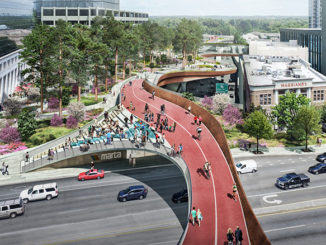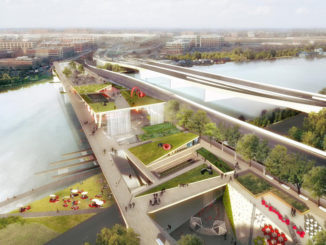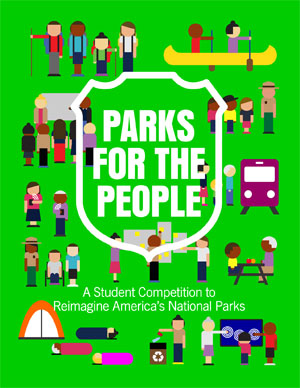
City College of New York and Rutgers, were honored with Awards of Excellence for their entries Van Alen Institute: Projects in Public Architecture and the U.S. National ParkService are pleased to announce the winners of Parks for the People: A Student Competition to Reimagine America’s National Parks. Eight student and faculty teams were honored at the competition award ceremony, reception, and exhibition opening on September 19 in Washington, D.C. at the AIA Legacy Foundation’s Octagon Museum.
Two of the studio teams, City College of New York and Rutgers, The State University of New Jersey, were honored with Awards of Excellence. The ceremony also celebrated the work of six Finalist teams from Cornell University,Florida International University, Kansas State University, University of Pennsylvania, Pratt Institute, and University of Washington.
In fall 2011, 41 student and faculty teams from 35 colleges and universities responded to a nationwide call forstudio proposals in stage one of the competition. Over the course of spring 2012 studios, nine stage one winnersworked with National Park Service administrators and the competition Advisory Committee to explore seven parksites and propose visions that tested and refined National Park Service principles to advance design excellence inthe national parks.
FINDING COMMON GROUND | CITY COLLEGE OF NEW YORK
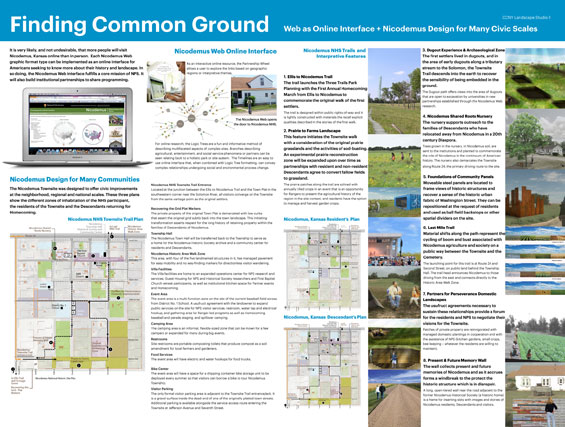
The CCNY studio begins by defining the new National Park Service role not as an interpreter of Nicodemus’ place and past, but as the designer of a framework for the narratives of the people of Nicodemus — past, present, and future. The studio proposes to strengthen the interpretive scope of Nicodemus NHS in the context of other African-American and westward expanding settlements across the country, but also to connect it with institutions taking part in larger discussions of rights to ethnic identity and the often obscure mechanisms with which minority populations struggle to achieve equity.
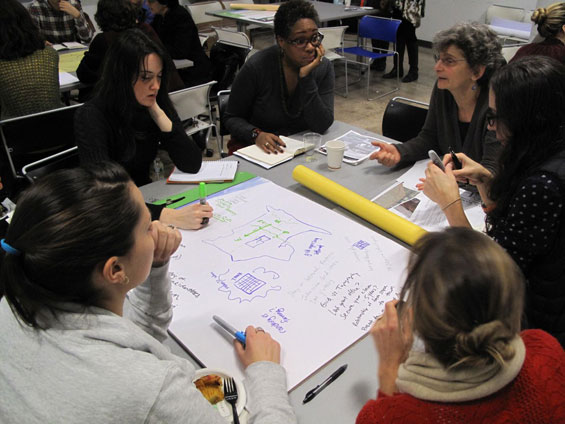
HOPEWELL FURNACE NATIONAL HISTORIC SITE: A PARK FOR THE PEOPLE | Rutgers
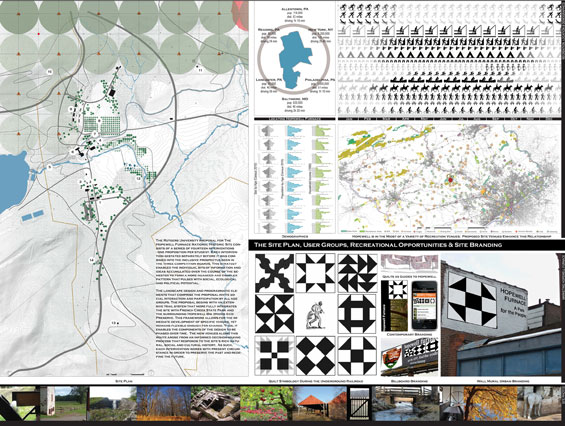
The Rutgers design methodology conceived of historic preservation, ecological restoration, and public outreach as part of an ongoing spatial narrative in which each design intervention becomes a new thread of change interwoven into a complex cultural tapestry.
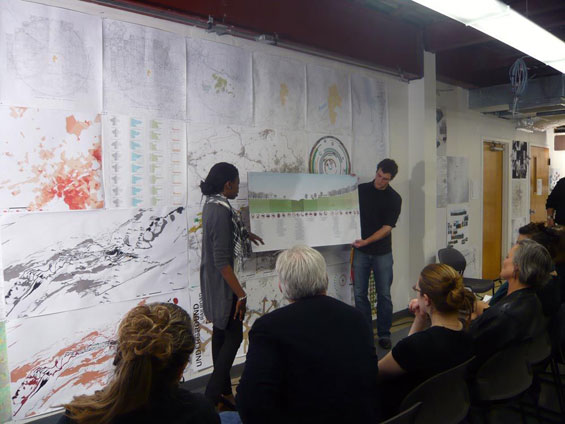
IMAGES: Courtesy of Van Alen Institute


